As a pandemic and protests roil our nation, it may feel obtuse to bury your head in a stuffy philosophy book. But philosophy books are responsible for changes in the paradigm that rock the world, from thoughts on leadership and change to moral philosophy of the ilk made accessible by The Good Place. The best philosophy books can re-engender your empathy for fellow humans, reorient your values and your politics, and make you reconsider the world at large.
So we asked Regeen Kiernan Najar, the publisher of Philosophical Library to share the titles she believes every seeker of wisdom should have on their bookshelves. These philosophy books will give you the basic grounding in the subject you need from icons like Plato and Kant, then bring you into the modern day with Sartre and Mao Tse-Tung.
Here's what she had to say:
"Philosophy—the foundation of critical thinking and the basis for all knowledge—is more important than ever because its systems use logic and reason to discover truths about human existence. A traditional grounding in philosophy includes classics such as Plato’s The Republic, Machiavelli’s The Prince, Descartes’ Discourse on Method, and Kant’s Critique of Pure Reason.
"In The Republic, Plato employs a Socratic dialogue to explore fundamental issues of justice and man. Machiavelli’s The Prince, a treatise on the acquisition and preservation of power, still resonates today. Descartes’ Discourse on Method, one of philosophy’s most influential works, contains the famous quote, “I think, therefore I am.” Critique of Pure Reason, Kant’s magnum opus, seeks to define what can be known by reason alone without evidence from experience.
"To that canon, Philosophical Library adds “modern classics” such as Bertrand Russell’s The Problems of Philosophy, and Jean-Paul Sartre’s The Emotions. Russell applies 20th Century thinking to age-old philosophy, providing a critical look at the major philosophical accomplishments from ancient Greece to his day. Sartre endeavors to understand the role that emotions play in the human psyche as he analyzes fear, lust, anguish, and melancholy.
"We complete the grounding with Classics in Chinese Philosophy by Wade Baskin and two essential Philosophical Library anthologies: Great Philosophers Volume One, and Great Philosophers Volume Two. Baskin introduces us to the most important documents of the intellectual heritage of China, from the Confucian Analects to the theoretical statements of Mao Tse-Tung.
"The Great Philosophers Volume One and Volume Two bring together teachings, musings, and theories from several of recent history’s greatest thinkers, including Baruch Spinoza, Russell, Albert Schweitzer, Albert North Whitehead and Moses Maimonides. You can go deeper with Principles of Cartesian Philosophy by Spinoza, an in-depth view into the philosophical doctrine of Descartes, or many of the dozens of other Philosophical Library titles!"
Thanks, Regeen! Below, we've collected her suggestions—dive into the best philosophy books now.
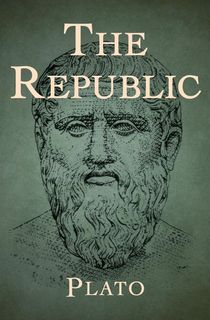
The Republic
It all comes back to the Greeks. Plato, considered the founder of Western political philosophy, expounds upon the city-state, justice, education, and the role of philosophy itself in The Republic. The infamous allegory of the cave originates in this vital philosophical text.
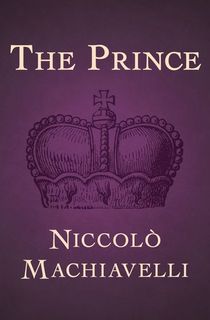
The Prince
If you've ever heard the phrase "the ends justify the means", you have Machiavelli to thank. This exploration of power and society was a key text for rulers at the end of the medieval period. Although Machiavelli did not originate the idea of a benevolent dictator, he certainly popularized it in this text, commissioned by his own ruler, Lorenzo de' Medici.
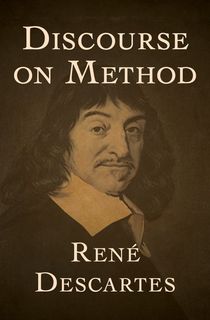
Discourse on Method
Most famous for the ringing declaration, "I think, therefore I am", Descartes's magnum opus deserves to be read in its entirety rather than boiled down to a single sentence. Descartes and his compatriots mark the beginning of the modern era of philosophy, and did much to set the course of Western philosophy for the next 300 years.
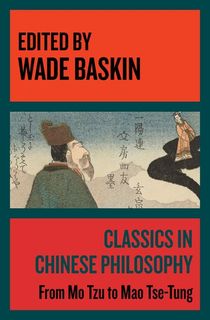
Classics in Chinese Philosophy
Although Western philosophy is often emphasized over Eastern philosophy, there can be no doubt that Eastern philosophy is equally vital to our understanding of the world—nor can its unique insights be dismissed. This collection explores China's history through its philosophy and allows readers a better understanding of the modern country.
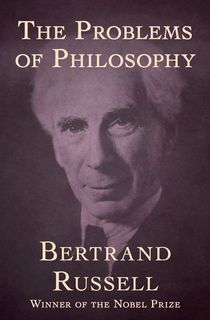
The Problems of Philosophy
It may sound like the punchline to a bad joke, but Bertrand Russell's 1912 contribution focuses its reader on the areas of philosophy he believed would promote the most—and the most useful—discussions. If you don't want to read each individual take from earlier philosophers, Russell lays out the basics and the evolutions of the field of philosophy in sum here.

The Emotions
Sartre focuses on what every human experiences to gain a better understanding of the psyche here. This existentialist investigation of emotion is a valuable introduction to one of the powerhouses of the 21st century.
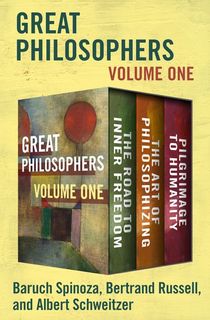
Great Philosophers Volume One
Journey through centuries as key philosophers grapple with love, logic, and culture with this book bundle. Featuring a Jewish Portuguese scholar of the 17th century, a 20th century missionary, and a Nobel Prize winner, this volume offers a variety of thought and perspective.
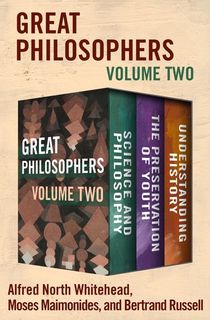
Great Philosophers Volume Two
In this volume, the field of philosophy applies its knowledge to other endeavors—Einstein's theory of relativity, the experience of youth and wellbeing, and the study of history, to name just a few. This collection is key to understanding how philosophy is interconnected with life itself.
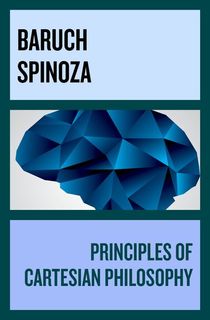
Principles of Cartesian Philosophy
Although the title references Descartes, this philosophy book is an excellent entry into Spinoza's particular thoughts on philosophy and metaphysics. A lesser-known but vital contributor to the field, Spinoza's oeuvre is vital for any philosophy student looking to deepen their knowledge.
This post is sponsored by Open Road Media. Thank you for supporting our partners, who make it possible for The Archive to continue publishing the history stories you love.
